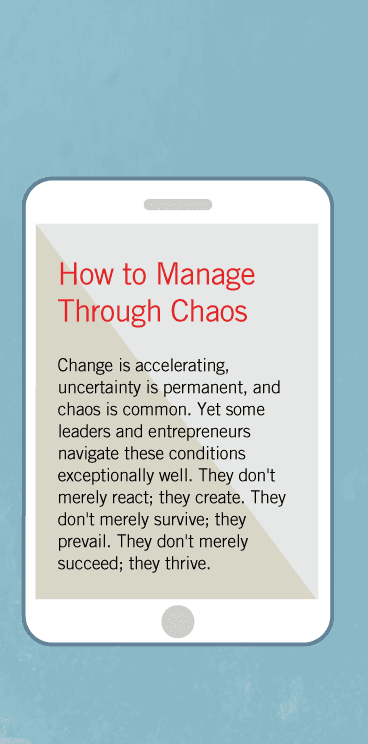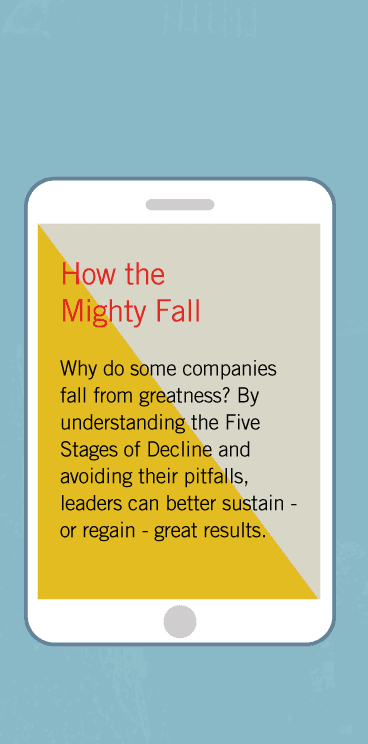Leadership Lessons from West Point
"The misperceptions my M.B.A. classmates had about Army training and its relevance for leadership outside the military," he responded. He then described a debate that had erupted in one of his classes, and how one of his classmates had challenged, "In the Army, you don't really need to lead because soldiers are so well trained to follow orders."
If leadership exists only if people follow when they have the freedom not to follow, I thought perhaps his classmate had a point. After all, civilian life does not have the same clear chain of command as the US Army. When I pushed on this point, the captain responded that, yes, the Army has a clear chain of command, but Army leaders face one giant reality that business leaders rarely face: "In business, if you make bad decisions, people lose money, and perhaps jobs," he said. "In the military, if you make bad decisions, nations can fall and people can die."
The phrase stuck in my mind: people can die. In the Army, it matters to your very existence if your leaders are competent. It matters if your leaders are trustworthy. It matters if your leaders care more about themselves than they do about their people or the mission. Your life may well depend on it. Combine this truth with the larger mission of protecting national interest and advancing the cause of freedom, and you get a context for leadership rarely faced in the normal course of business.
This wonderful book gives us a glimpse into the lessons of leadership that can best be grasped in the face of high stakes and large consequences. Upon receiving the manuscript, I began my standard reading process of flipping through the chapter title pages to get a sense of the overall work before delving into a page-by-page read. But along the way, I found myself drawn in, stopping to read entire chapters before completing my initial scan, increasingly excited by the project. These writers blend their very real experiences with thoughtful frameworks, bringing them to life with vivid stories.
Disciplined people who engage in disciplined thought and who take disciplined action: this framework captures much of what separates greatness from mediocrity. The Army has long embraced this concept with its own framework of leadership: Be-Know-Do. This framework runs through these chapters, like a thread of DNA. The beauty of this book lies in the dualities of leadership—knowing when to follow and when to not follow, the responsibility to question and the responsibility to execute, dedication to mission first and dedication to your comrades above all. These dualities highlight the point that disciplined action does not mean rote action. Disciplined action means that you begin with a framework of core values (be), you meld those values with knowledge and insight (know), and finally you make situation-specific decisions to act (do). Leadership, the chapters in this book teach, begins not with what you do, but who you are.
Encoded into the West Point approach are two eternal truths. First, the medium- and long-term future cannot be predicted, and second, the best "strategy" in a volatile environment lies in having the right people who embody your organization's core values and who can adapt to unanticipated challenges. West Point exists not to train soldiers for a specific war but to develop leaders who can adapt to whatever war might be thrust on our nation—no matter what continent, no matter what conditions, no matter what form of warfare, no matter what enemy.
West Point answers the question "Can leadership be learned?" with the idea that whether you like it or not, you are a leader. The real question is whether you will be an effective leader. In reading this book, I realized that West Point also addresses a question that I've been wrestling with: Can Level 5 Leadership be developed? In our research into why some companies become great while others do not, my colleagues and I observed that leadership capabilities follow a five-level hierarchy, with Level 5 at the top. At Level 1, you are a highly capable individual. At Level 2, you become a contributing team member. At Level 3, you become a competent manager. At Level 4, you become an effective leader. Stepping up to Level 5 requires a special blend of personal humility and professional will—the capacity to channel your personal ambitions and capabilities into a larger cause or mission. Level 5 leaders differ from Level 4 in that they are ambitious first and foremost for the cause, the organization, the mission, the nation, the work—not themselves—and theyhave the will to do whatever it takes (within the bounds of the organization's core values) to make good on that ambition. These chapters show that West Point is in the business of developing not just leaders, but Level 5 leaders; the ideals of service, dedication to cause, loyalty to comrades, sacrifice, courage, and honor shine through these pages.
Toward the end of my visit to West Point, I had the privilege of conducting a small seminar for soon-to-graduate cadets, invited by a few members of the faculty who penned some of these chapters. One senior cadet, who would almost certainly graduate to dangerous duty in the Middle East, said to me that he felt more fortunate than his friends who had gone to places like Harvard and Stanford. "No matter how the rest of my life unfolds," he explained, "I know that I have served a larger cause than myself." Earlier that day, a senior general officer commented that this current generation of West Point graduates stands as one of the most inspired—and inspiring—since the graduating class of 1945.
I came away from those sessions struck by the contrast between these young men and women and my graduating class from college in 1980. For two decades, we lived in a world of artificial stability, made possible by America's triumph in the Cold War, combined with an era of perverted prosperity culminating in the stock market bubble of the late 1990s. My generation had no larger cause, no overriding ethos of service, no great object that extracted our sacrifice. And we are poorer for it. The West Point leaders who introduced me to these inspired cadets, and who write so passionately in this book about the principles of courage, sacrifice and commitment, helped me to see that this younger generation of idealistic men and women deserve not to be just students of their elders but—equally—our teachers.
September 2006
Boulder, Colorado






